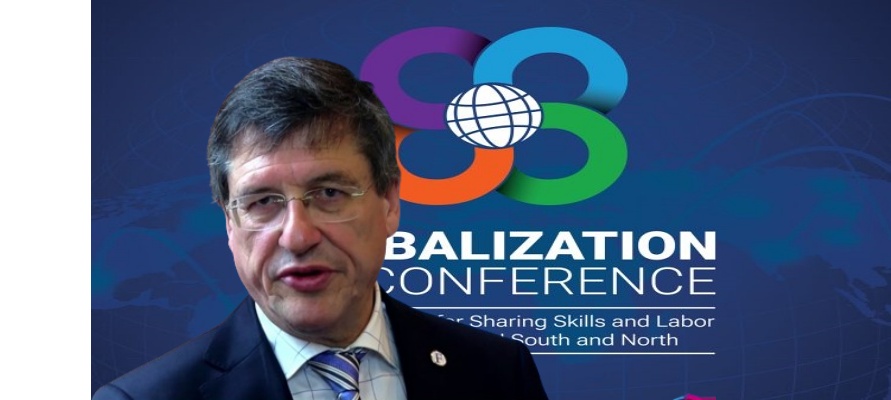A New Win-Win Concept for The Division of Labour Between the Global North and South

Europe and Africa are linked in an almost fateful way. Crises on one continent always have an impact on the other. The war in Ukraine is a very recent example of this. Although the Russian war of aggression is taking place many thousands of kilometres away, people here are suffering from rising food and energy prices - a direct consequence of this war.
Conversely, Europe cannot be indifferent to the fact that many people in Africa are still living in abject poverty. The deaths of many Africans who make the dangerous journey across the Mediterranean in search of a better life are simply unacceptable. People in Africa need the prospect of an economically and socially secure life in their homeland. There is no alternative to this!
We want to initiate a debate that brings the two continents together in a positive way rather than a crisis.
It is about a new concept for the division of labour between North and South, from which both sides benefit equally. A win-win model in the truest sense of the word.
We all know that Europe, and Germany in particular, is suffering from a considerable shortage of skilled workers. This will increase massively in the coming years when the so-called baby boomer generation retires. The number of young people in Europe is simply not sufficient to fill the gaps left by the baby boomers.
This shortage of skilled workers is jeopardizing the existence of companies and the prosperity of European economies as a whole.
At the same time, Africa is facing the exact opposite challenge. The population is growing and young people need jobs that will give them a good and secure life.
How can this demand for work and the supply come together?
Migration only appears to be a solution.
Leaving your home country is always difficult. Those who have to do it anyway out of necessity usually pay a high price by having to leave family and friends behind.
However, the integration of many people is also a challenge for the destination countries. After the large waves of refugees in recent years, the willingness to take in more people is limited. The alarming electoral success of populist and far-right parties in many European countries is largely a result of the fear of a supposed foreign infiltration.
We therefore want to discuss a model that enables the advantages of a division of labour between North and South while avoiding the disadvantages of migration.
I am referring to virtual cooperation via digital networks.
The conditions for this have never been better. The networks are more powerful than ever before and virtual collaboration is nothing new for most of us. During the coronavirus pandemic, we all learned that you don't have to be in the same office to collaborate effectively.
What needs to happen for us to use this form of collaboration on a large scale across continents? What bottlenecks - legal, linguistic or cultural - need to be overcome? What skills should young people in Africa and other regions of the Global South acquire in order to qualify for these jobs?
Some of the answers are provided by a survey of HR experts commissioned by the Friedrich Naumann Foundation.
This conference should only be the beginning of further work on this topic in the coming months and perhaps even years.
Wouldn't it be great if we could later say that this conference on the 60th anniversary of Kenya's independence opened a new chapter of cooperation with Europe? A cooperation that is truly mutually beneficial?
That is what I wish for all of us!
Prof. Karl Heinz Paqué,
The Chairman of the Friedrich Naumann Foundation.
